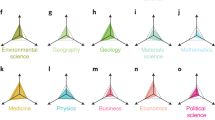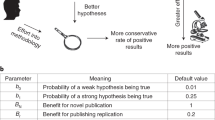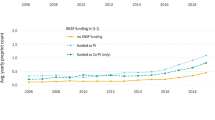Abstract
PUBLIC attention was directed to the subject of scientific research by the proceedings at the annual meeting of the trustees of the Carnegie Trust, and especially by the prominence given to the promotion of original research in the speech of Mr. Balfour, reported in NATURE of March 4. The reports of the proceedings may have engendered in some minds exaggerated notions as to the extent to which philanthropic effort may succeed in solving the problem of providing incentives to original research. It will be as well, therefore, to mention, for the information of those who are unacquainted with the regulations under which monies subject to the trust may be applied in the promotion of original research, that the incomes of the beneficiaries under the trust are very limited, and the conditions which are specified in the scheme of the trustees are very restrictive. Mr. Balfour, though he spoke encouragingly of the methods adopted by the trustees, alluded to the difficulty and delicacy of the task of selecting people for original work, and to the “puzzling questions of administration” with which it is surrounded; and it seems impossible, without the aid of legislation, to devise any scheme for the application of monies to research purposes which will succeed in inspiring confidence in research workers and which will not greatly restrict the research work which it may be designed to encourage. Had inventors of patentable inventions been encumbered by conditions similar to those to which research workers who are the objects of private munificence are subjected, the progress of invention would have been immeasurably retarded. The conditions under which the invention of patentable inventions is stimulated do not necessitate an inventor relinquishing the pursuit of any trade, occupation, or profession in which he may be engaged. He is under no obligation to satisfy anyone as to the direction his labours may take, and he is free to devote his talents to the work of invention at such times as he may for himself determine. Moreover, forms of judicial procedure are made available for him by which he can defend his claim to be described as “the true and first inventor” of his invention, whether that be disputed by rival inventors, or opposed on false or fraudulent grounds, or be the subject of official objection.
This is a preview of subscription content, access via your institution
Access options
Subscribe to this journal
Receive 51 print issues and online access
$199.00 per year
only $3.90 per issue
Buy this article
- Purchase on Springer Link
- Instant access to full article PDF
Prices may be subject to local taxes which are calculated during checkout
Similar content being viewed by others
Author information
Authors and Affiliations
Rights and permissions
About this article
Cite this article
PRIEST, W. The Promotion of Scientific Research. Nature 80, 68–69 (1909). https://doi.org/10.1038/080068b0
Issue Date:
DOI: https://doi.org/10.1038/080068b0
Comments
By submitting a comment you agree to abide by our Terms and Community Guidelines. If you find something abusive or that does not comply with our terms or guidelines please flag it as inappropriate.



